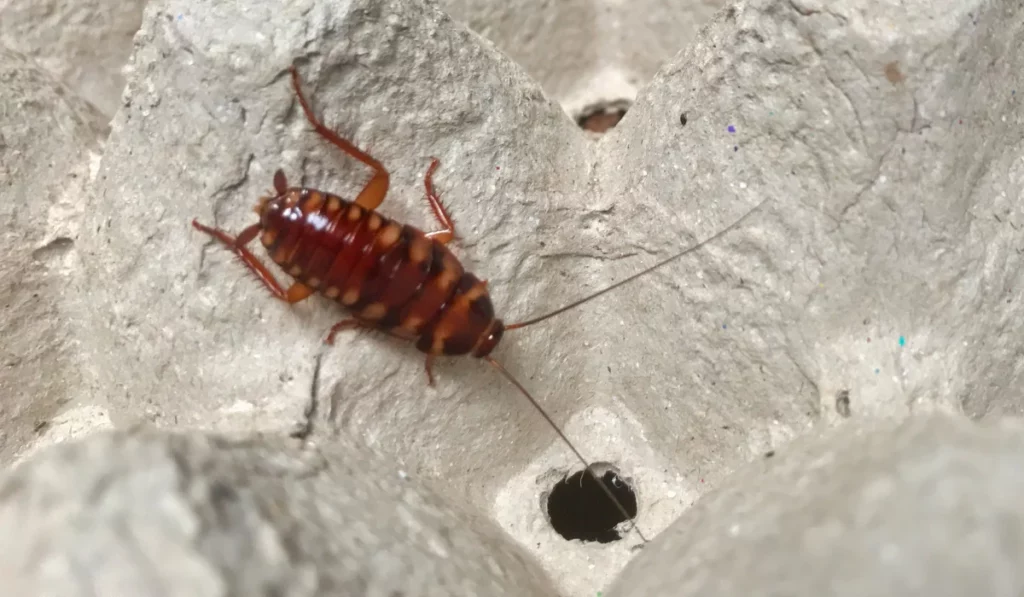
Summertime in Southern California means outdoor fun, but it also brings mosquitoes. These pests can ruin a backyard BBQ and carry diseases.
Keeping mosquitoes at bay starts with eliminating standing water, as these insects lay their eggs in stagnant water.
Are you tired of being mosquito bait even when you use repellents? For more detailed tips on how to enjoy a mosquito-free summer, keep reading!
Key Takeaways
- All standing water around your property should be removed to prevent mosquito breeding.
- Screens on windows and doors and mosquito nets effectively block mosquitoes from entering living spaces.
- EPA-approved repellents and mosquito-repellent plants like citronella and lavender are essential for keeping mosquitoes at bay.
- Habitats that support mosquito-eating animals like birds and bats help control mosquito populations.
1. Eliminate Standing Water
Stagnant water is where mosquitoes lay their eggs. Inspecting for water accumulation involves checking some often-overlooked spots. Common mosquito breeding sources to check:
- Gutters
- Saucers and flower pots
- Birdbaths.
- Old tires
- Swimming pools
- Bottle caps and small containers
- Rain barrels
2. Use Mosquito Repellents
Using mosquito repellents is one of the most effective ways to prevent mosquito bites. Various types of repellents can be applied to the skin or clothing to keep mosquitoes at bay, and there are specific tips for ensuring these repellents work effectively.
Insect repellents come in various forms and contain different active ingredients approved by the Environmental Protection Agency (EPA), such as:
| Repellent | Benefits |
|---|---|
| DEET | Long-lasting, effective in high-risk areas |
| Picaridin | Less greasy, low odor |
| Oil of Lemon Eucalyptus | Plant-based, pleasant scent |
| Natural Repellents | Eco-friendly, mild, and suitable for children |
3. Install Screens on Windows and Doors
Adding screens to your windows and doors can significantly reduce the number of mosquitoes entering your home.
4. Use Mosquito Nets
Using mosquito nets is particularly useful when wearing permethrin-treated long sleeves and other precautions recommended by the Centers for Disease Control and Prevention (CDC).
Types of mosquito nets you can use are:
| Types of Mosquito Nets | Details |
|---|---|
| Bed Nets | Designed to cover beds, typically rectangular or cylindrical |
| Window Nets | Installed over windows to prevent mosquitoes from entering |
| Pop-up Nets | Portable and easy to set up, ideal for camping or temporary use |
| Hanging Nets | Suspended from ceilings to protect large areas, like patios |
5. Plant Mosquito-Repelling Plants
Planting certain types of plants can help repel mosquitoes in your garden. Some plants emit natural fragrances and oils that deter mosquitoes and their larvae.
Some recommended plants for mosquito problems include:
- Citronella: Often used in candles, its strong lemon scent deters mosquitoes.
- Lavender: Its aromatic oils repel mosquitoes and other insects.
- Marigolds: Emit a scent disliked by mosquitoes, mainly Aedes mosquitoes.
- Basil: Contains chemical compounds that keep mosquitoes away.
- Peppermint: The strong minty aroma is excellent for repelling mosquitoes.
- Lemon Balm: High in citronellal, making it very effective.
6. Mosquito Traps
Utilizing mosquito traps can significantly diminish mosquito populations in your vicinity, thus enhancing mosquito control efforts.
The various kinds of traps include:
| Types of Trap | Advantages |
|---|---|
| CO2 Traps | Effective for widespread mosquito control |
| UV Light Traps | Useful indoors and reduces overall mosquito numbers |
| Sticky Traps | Simple and chemical-free |
| Heat Traps | Efficient in attracting mosquitoes seeking warmth |
7. Lawn Maintenance
Maintaining a well-groomed lawn significantly reduces mosquito breeding grounds by eliminating potential habitats.
The California Department of Public Health (CDPH) recommends focusing on these practices to control mosquito populations and disrupt their life cycle effectively.
| What to Do | Frequency | Reason |
|---|---|---|
| Mowing the Lawn | Weekly | Prevents overgrowth |
| Pruning Bushes | Bi-weekly | Reduces shaded areas |
| Inspecting for Water | After rain | Eliminates breeding grounds |
8. Encourage Natural Predators
Some species are particularly effective at preying on mosquito larvae and adults. Some effective mosquito predators include:
- Birds: Swallows, Purple Martins, and Bats
- Insects: Dragonflies, Damselflies, and Predatory Beetles
- Fish: Mosquitofish (Gambusia affinis)
9. Use Fans in Outdoor Areas
Using fans in outdoor areas can significantly reduce mosquito presence. Here’s how they work:
- Disrupts Flight: Adult mosquitoes struggle to fly in windy conditions.
- Reduces Attraction: Disperses carbon dioxide, making it harder for mosquitoes to find people.
- Cools Area: Adds comfort along with mosquito protection.
The placement of fans is crucial for maximizing their effectiveness in deterring mosquitoes. For best results, consider positioning the fans:
- Gathering Areas: Place fans where people sit or stand.
- Cross-Breezes: Use multiple fans to create intersecting wind currents.
- Various Heights: Position some fans low and others higher for better coverage.
10. Call a Professional
Professional mosquito control services offer specialized solutions to keep mosquitoes at bay. They are especially useful during peak mosquito season or in areas with high mosquito activity.
When to Consider Professional Help
Knowing when to call in the professionals is crucial. If mosquito presence becomes unbearable despite DIY efforts, it might be time to get pest control assistance.
Severe mosquito activity, particularly in dense urban areas like the Greater Los Angeles County, can warrant professional intervention.
Dealing with mosquitoes, cockroaches, termites, or other general pests? Call today to get a free estimate!
 1st pest control service just $49. Must schedule service online.
1st pest control service just $49. Must schedule service online.

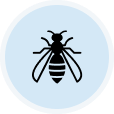
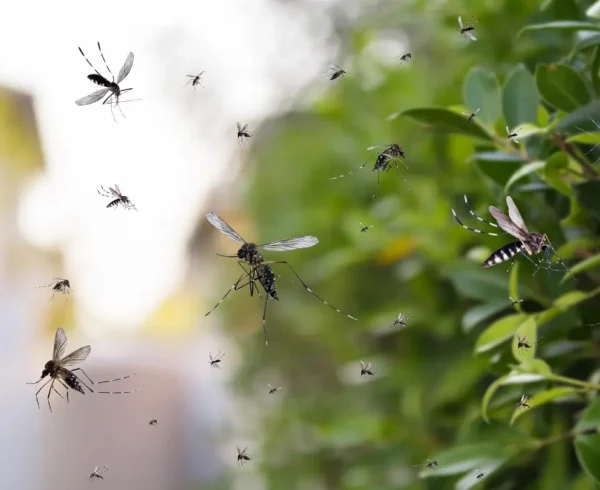
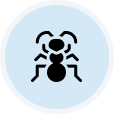
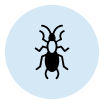

 You’re supporting a small, local business
You’re supporting a small, local business

